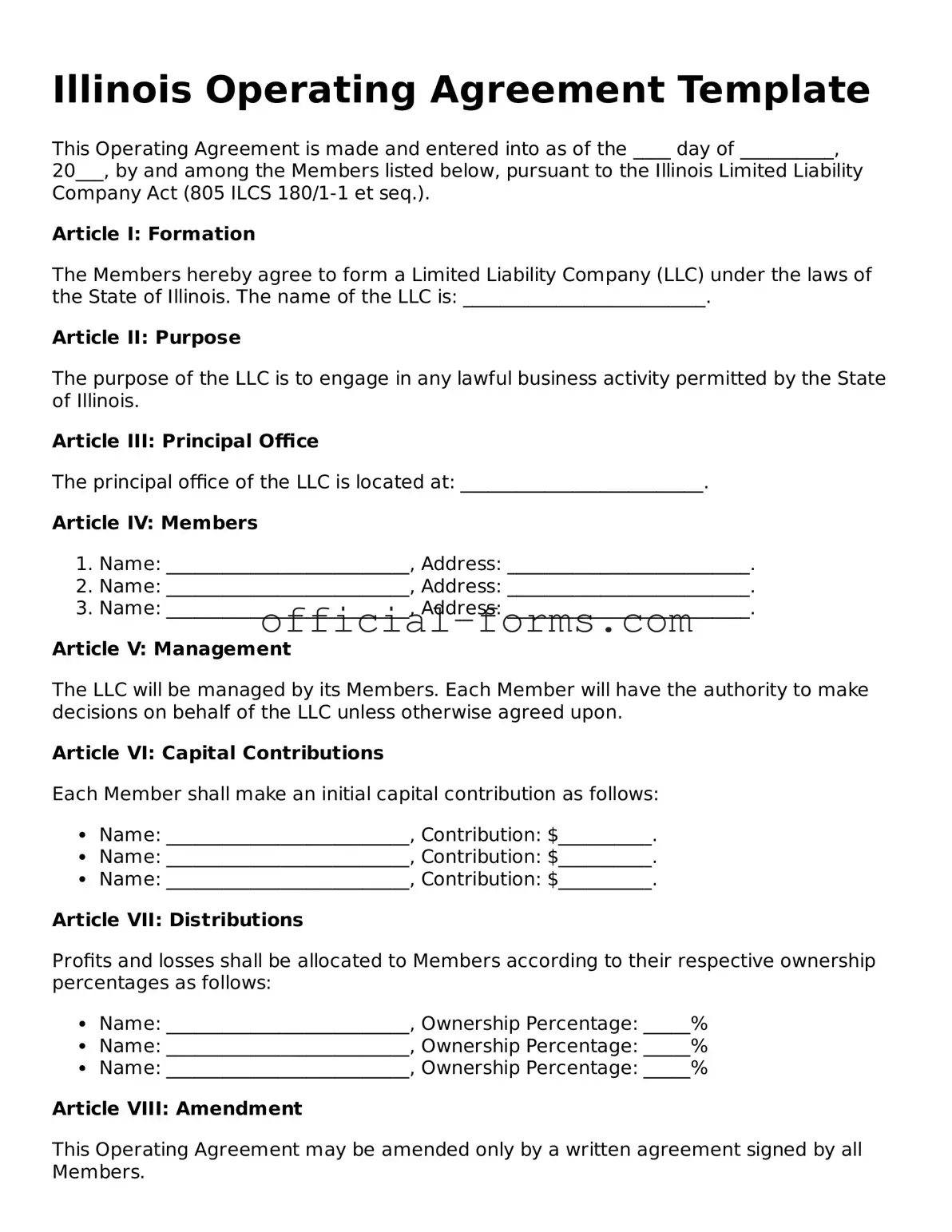Filling out the Illinois Operating Agreement form can be a straightforward process, but mistakes can lead to complications down the line. One common error is not including all members of the LLC. It's essential to list every member's name and address to ensure that all parties are recognized in the agreement.
Another frequent mistake is failing to specify the management structure. Whether the LLC will be member-managed or manager-managed should be clearly stated. This decision affects how the business will operate and who will make day-to-day decisions.
People often overlook the importance of defining each member's ownership percentage. This detail is crucial, as it determines how profits and losses are shared. Without clear percentages, disputes may arise later regarding distributions.
Inadequate provisions for meetings can also create issues. Some individuals forget to outline how often meetings will occur and how they will be conducted. Establishing a clear process helps maintain order and communication among members.
Another mistake is neglecting to include a buy-sell agreement. This provision is vital for outlining what happens if a member wants to leave the LLC or if a member passes away. Without this, the future of the business could be uncertain.
Some people fail to update the Operating Agreement after significant changes. If a new member joins or if there’s a change in management, it’s important to revise the document accordingly. An outdated agreement can lead to confusion and potential legal issues.
Not addressing how disputes will be resolved is another common oversight. Including a dispute resolution clause can save time and money in the event of disagreements among members. This clause can specify mediation or arbitration as a preferred method.
Additionally, individuals sometimes skip the section on amendments. It’s crucial to include a process for making changes to the Operating Agreement. This ensures that all members agree on how future modifications will be handled.
Another frequent mistake is not having the agreement signed by all members. An unsigned agreement may not hold up in court, so it’s vital to ensure that every member signs and dates the document.
Lastly, some people forget to keep a copy of the Operating Agreement. It’s important to store it in a safe place and ensure that all members have access to it. This document serves as a reference for the terms agreed upon and can help prevent misunderstandings in the future.

